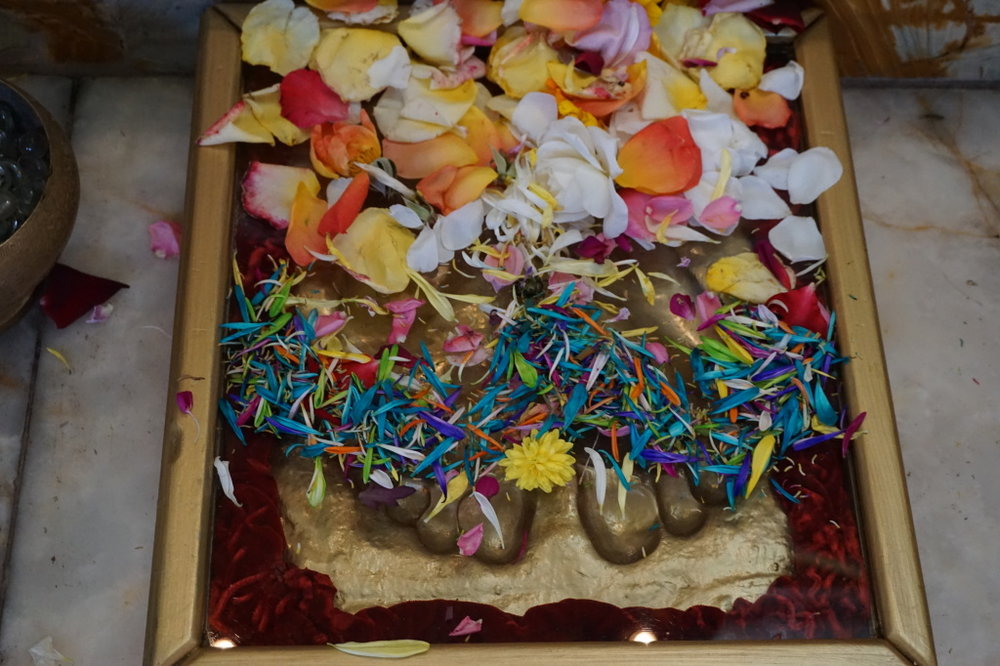 altar[awl-ter]Spell SyllablesExamples Word Originnoun1.an elevated place or structure, as a mound or platform, at which religious rites are performed or on which sacrifices are offered to gods, ancestors, etc.2.Ecclesiastical. communion table.3.(initial capital letter) Astronomy. the constellation Ara.4.(in a dry dock) a ledge for supporting the feet of shorings.Idioms5.lead to the altar, to marry:After a five-year courtship, he led her to the altar.Origin of altar ExpandMiddle EnglishOld FrenchOld EnglishMiddle Dutch1000before 1000; Middle English alter, altar (influenced by L), auter (< Old French aut (i) er), Old English alter (OE also altar; compare Middle Dutch outaer, Old Saxon, Old Norse altari, Old High German alt?ri) < Latin alt?ria (plural), of disputed origin and formation, but probably akin to Latin adol?re to ritually burn, Umbrian u?etu let it burnCan be confused Expandaltar, alter.Dictionary.com UnabridgedBased on the Random House Dictionary, © Random House, Inc. 2015.British Dictionary definitions for altar Expandaltar/???lt?/noun1. a raised place or structure where sacrifices are offered and religious rites performed2. (in Christian churches) the communion table3. a step in the wall of a dry dock upon which structures supporting a vessel can stand4. (informal) lead to the altar, to marryWord OriginOld English, from Latin alt?ria (plural) altar, from altus highCollins English Dictionary – Complete & Unabridged 2012 Digital Edition© William Collins Sons & Co. Ltd. 1979, 1986 © HarperCollinsPublishers 1998, 2000, 2003, 2005, 2006, 2007, 2009, 2012Cite This SourceWord Origin and History for altar Expandn.Old English alter, altar, from Latin altare (plural altaria) “high altar, altar for sacrifice to the great gods,” perhaps originally meaning “burnt offerings” (cf. Latin adolere “to worship, to offer sacrifice, to honor by burning sacrifices to”), but influenced by Latin altus “high.” In Middle English, often auter, from Old French auter. Reintroduced from Latin 1500s. As a symbol of marriage, by 1820.Online Etymology Dictionary, © 2010 Douglas Harper
altar[awl-ter]Spell SyllablesExamples Word Originnoun1.an elevated place or structure, as a mound or platform, at which religious rites are performed or on which sacrifices are offered to gods, ancestors, etc.2.Ecclesiastical. communion table.3.(initial capital letter) Astronomy. the constellation Ara.4.(in a dry dock) a ledge for supporting the feet of shorings.Idioms5.lead to the altar, to marry:After a five-year courtship, he led her to the altar.Origin of altar ExpandMiddle EnglishOld FrenchOld EnglishMiddle Dutch1000before 1000; Middle English alter, altar (influenced by L), auter (< Old French aut (i) er), Old English alter (OE also altar; compare Middle Dutch outaer, Old Saxon, Old Norse altari, Old High German alt?ri) < Latin alt?ria (plural), of disputed origin and formation, but probably akin to Latin adol?re to ritually burn, Umbrian u?etu let it burnCan be confused Expandaltar, alter.Dictionary.com UnabridgedBased on the Random House Dictionary, © Random House, Inc. 2015.British Dictionary definitions for altar Expandaltar/???lt?/noun1. a raised place or structure where sacrifices are offered and religious rites performed2. (in Christian churches) the communion table3. a step in the wall of a dry dock upon which structures supporting a vessel can stand4. (informal) lead to the altar, to marryWord OriginOld English, from Latin alt?ria (plural) altar, from altus highCollins English Dictionary – Complete & Unabridged 2012 Digital Edition© William Collins Sons & Co. Ltd. 1979, 1986 © HarperCollinsPublishers 1998, 2000, 2003, 2005, 2006, 2007, 2009, 2012Cite This SourceWord Origin and History for altar Expandn.Old English alter, altar, from Latin altare (plural altaria) “high altar, altar for sacrifice to the great gods,” perhaps originally meaning “burnt offerings” (cf. Latin adolere “to worship, to offer sacrifice, to honor by burning sacrifices to”), but influenced by Latin altus “high.” In Middle English, often auter, from Old French auter. Reintroduced from Latin 1500s. As a symbol of marriage, by 1820.Online Etymology Dictionary, © 2010 Douglas Harper






